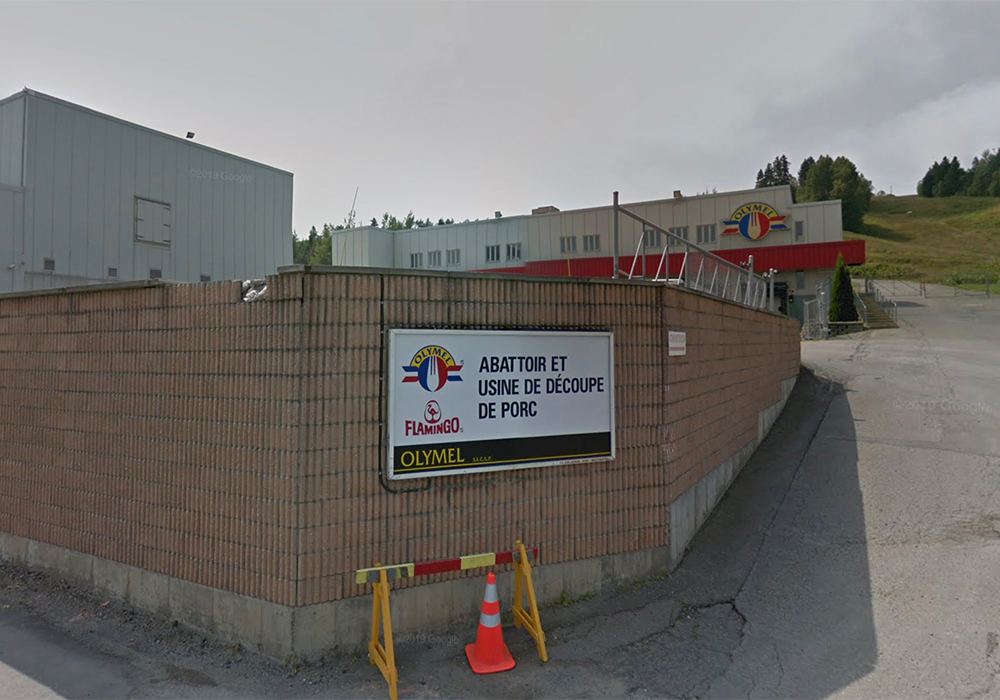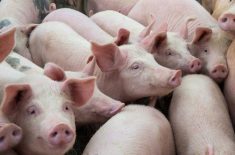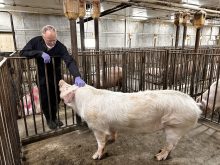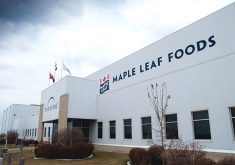The closure of a major hog slaughter plant in Quebec has sent shock waves through the Eastern Canadian hog industry, but the Canadian Pork Council sees no reason to panic.
“It’s not all companies that have made these decisions,” said CPC chair Rene Roy, a Quebec hog farmer, in an interview after Olymel’s decision to close its Vallee Jonction plant and cut 994 staff was announced.
“In Quebec right now, there are some plants that are looking for expansion.”
Olymel is reducing its slaughter by 1.5 million pigs. It said pandemic impacts, labour shortages, inflation and unstable export markets had undermined its business and it needed to consolidate production.
Read Also

Agritechnica Day 2: The future of tractor power, building quicker crop apps and large farms and tech
Agritechnica Day 2: The future of tractor power, building quicker crop apps with Syngenta and large farms and tech
There should be few direct impacts for western Canadian hog farmers, who are more closely connected to U.S. Midwestern farms, processors and markets than to eastern Canadian markets.
However, the challenges cited by Olymel in Quebec are similar to complaints from western and American packers: labour shortages, cost increases and volatile export markets. Some packers are running at less than capacity because of the worker shortage.
“Yes, it is serious. We know it has been serious. But things are getting better and we hope that things will continue to get better,” said Roy.
“It’s not a symptom for the whole industry.”
The pork industry was hammered by the outbreak of COVID-19, suffering major disruptions on all levels in the first months of the pandemic.
Plants were shut when infections broke out. Pigs backed up on farms, unable to be shipped, and many pigs had to be euthanized when space ran out.
Meanwhile, pork prices shot higher as meat supplies ran low, even as live hog prices collapsed because of the plant shutdowns.
Farmers struggled through and most survived for a period of high prices, which have now abated.
The labour issues aren’t restricted to the packer level. Many large farms are desperately short of staff. Trucking companies are short drivers. Food processors and feed mills also report struggles to maintain full production.
















